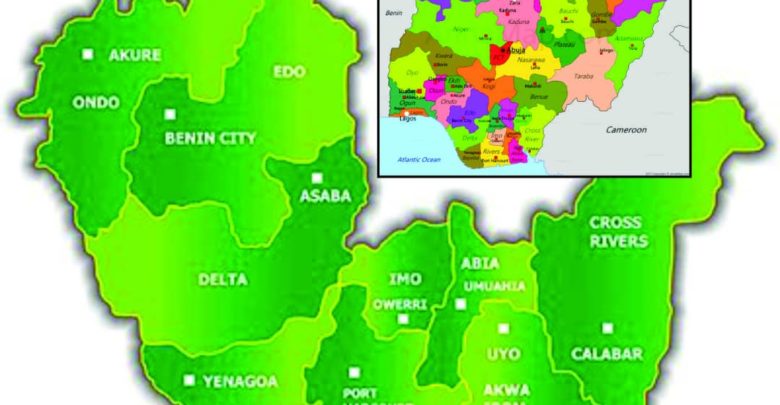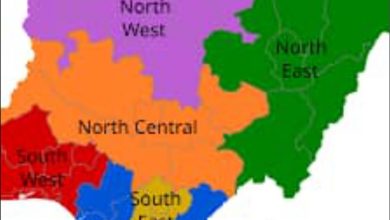
You cannot understand and effectively manage the present, to project the future, without a fair knowledge of the past. Was there a region called the Niger Delta before the advent of colonialism in Nigeria? What was the status of the Niger Delta Region before the amalgamation of the Northern and Southern Protectorate of Nigeria by Lord Frederick Lugard in 1914? For what was the region popular in the then Nigeria? What do we need to knew about the Niger Delta area?
These are some of the casual questions that some curious fellows have got to ask. And questions like the above, and many more like them, shall provide the stimulus and will be the preoccupation of this page in our determined attempt to sustain contemporary interest in the stream of time and stimulate recurrent discourse on the time tree and critical matters affecting the Niger Delta Region.
The page intends to dig down the depths – and even rake up – from extant archives hard nuggets that edify truth, erase misconceptions, spark scholarship, and expand the borders of understanding of this important socio-geographical bride in Nigeria’s history. Hence, for the unaffected authority and confidence the page wishes to exhibit, there will be generous recourse to complementary references where necessary and possible, with improvised or loose adherence to some tenable academic documentation traditions, to aid verifiability.
It is that once-in-a-week page on the Crystal Express Stable you can only miss at your own risk! This page is not anchored by a “historian” as some conservative pedagogues would insist by strict convention and contention; nor could it compete to claiming any perfection. But like the streams and creeks of the delta that empty into the Atlantic, it is an attempt by a dedicated student of history, a researcher, and consummate writer to document what is worth documenting. Some histories may never be written were we wait idly and depend solely on thick-feather and laurelled historians!
The straight and background answer to the first question above is a yes; but that would be more interpretative and explicable in the answer that questions two and three provide. The history of Nigeria dates back to prehistoric settlers who were said to have been living in the area as early as 1100BC. According to extant records, numerous ancient African civilizations such as the Kingdom of Nri, the Benin Empire, and the Oyo Empire first occupied the area that later became Nigeria.
But it was the Transatlantic Slave Trade that changed the history of the area than any other factor, as Europeans progressively invaded places down the tropics of Africa in search of slaves. Archaeological research by Charles Thurstan Shaw has shown that people were already living in the South-East about 100, 000 years ago, although Lagos was captured by British forces in 1851 and became part of what was known as British Protectorate, prior to the country’s independence in 1960.
The early independent kingdoms that made up the present-day Nigeria included Benin Kingdom, Borgu Kingdom, Fulani Kingdom, Hausa Kingdom, Kanem Bornu Empire, Kwararahfa Kingdom, Ibibio Kingdom, and Nri Kingdom. Others were Nupe Kingdom, Oyo Empire, Songhai and Warri Kingdom.
However, whereas the inherent geography still remains the same, it would be safer and more historically logical to say that the Niger Delta Region is still that southernmost mangrove coastal stretch of the Atlantic. However, they have been periodic and cumulative metamorphosis in scope and concept that must have accounted for the expanded and inclusive status of that the oil-rich region enjoys today.
Britain’s expanse of interest in the Niger Basin was recognized internationally in 1885. That was in addition to Lagos which had already been captured in 1862. Hence, between 1885 and 1894, the administrative headquarters of Niger Basin was in Bonny Island. What is now largely known as Niger Delta was a British Protectorate, originally established as Oil Rivers Protectorate and Niger Coast Protectorate (with headquarters in Old Calabar before it was moved to Lagos in 1901) in 1884, which subsequently got the assent of Queen Elizabeth in 1885 as part of the decision taken at that year’s Berlin Conference.
But seven years later, May 12, 1893, it was renamed as Niger Coast Protectorate and expanded to include the region from Old Calabar to Lagos Colony and northwards up to the Niger River down Lokoja, headquarters of the Royal Niger Company. Again, seven years later, to avoid conflicting interest bothering on cartographical delineation of Lagos and the oil Rivers, the area was merged in 1886 with what was called chartered territories of the Royal Niger Company to form the Colony and Southern Nigeria Protectorate on January 1, 1900. The two protectorates were amalgamated in 1914 by Lord Frederick Lugard.
Organized by Otto von Bismarck, first Chancellor of Germany, the Berlin Conference (1884-1885), also known as Congo Conference or West Africa Conference, streamlined European colonization interests and policies on trade in Africa during the New Imperialism which fell within the time Germany also emerged as an imperial power. It was at the Berlin Conference the General Act of the Berlin Conference was ratified as a vehicle for the formalization of the Scramble for Africa. With the document, there was increased colonial activity across Africa by European authorities that shattered practically all then existing African governance structures or autonomy.
These earliest mercantile incursions cannot successfully and logically be discussed without effective mention of one daring and adventurous risk-taking British businessman, George Dashwood Goldie. smarting away with clairvoyance, drawing impetus from the Berlin Conference and with prototype of the East India Company, he tactically bought over competing European interests, especially the French, and created the Royal Niger Company in 1886, a step that gave him immense control over the territories, including the Sokoto Caliphate and Borno. In overt conspiracy with the Queen, the grand and provident motive was control, ownership and profit and profiteering from the vibrant and latent resources of the lands of occupation with little or no regards for the aborigines.
Originally, by 1967, until the expansion
that came with the creation of additional states in the country by successive governments, the Oil Rivers basically covered the western costal South-South that included areas in Rivers State down to Benin. But with the creation of more states, the Niger Delta now covers the nine states of Rivers, Bayelsa, Akwa Ibom, Delta, and Edo. Others include Cross River, Ondo, Abia and Imo. The puzzle however is that not all states in the Niger Delta bracket belongs to the South-South, which geographically is the core delta.
From time immemorial, the delta area was recognized and called Oil Rivers because of its natural and superabundant endowment in palm fruit out of which palm oil, the mainstay of the then economy, like the present-day Crude Oil, was gotten. Crude oil was later discovered by Shell in Oloibiri in present-day Bayelsa State as far back as 1956, although exploration and exploitation actually began in 1958. Therefore, long before Independence in 1960, the region has been the sustainable bread winner of the country.
But what has been the story of the Niger Delta since then? To answer this squarely is an excerpt from form a contributed publication by Paul Francis, Deirdre Lapin and Paula Rossiasco – “Securing Development and Peace in the Niger Delta: A Social and Conflict Analysis for Change”, wherein it is stated:
“Few regions in the world have been as unfortunate as Nigeria’s oil-rich Niger Delta. The delta’s abundant natural wealth stands in stark contrast to its palpable underdevelopment. The oil sector accounts for approximately 95 percent of Nigeria’s export earnings and over 80 percent of federal government revenue, but for nearly two decades the delta has been mired in conflicts and violence that threatened human security and the national economy”.
This page shall examine the veracity of this statement and more like it as it sets to take readers on a cruise into the past of the Niger Delta Region. Watch Out!




